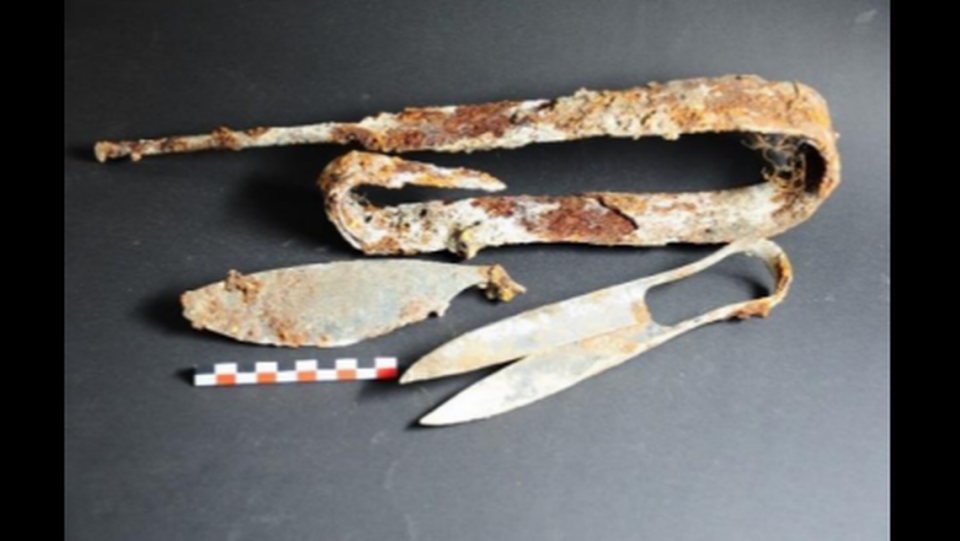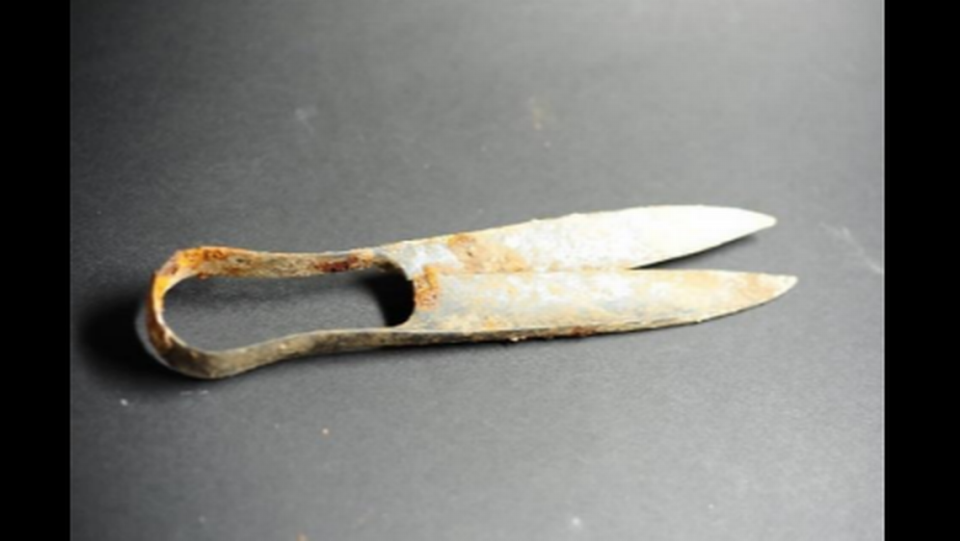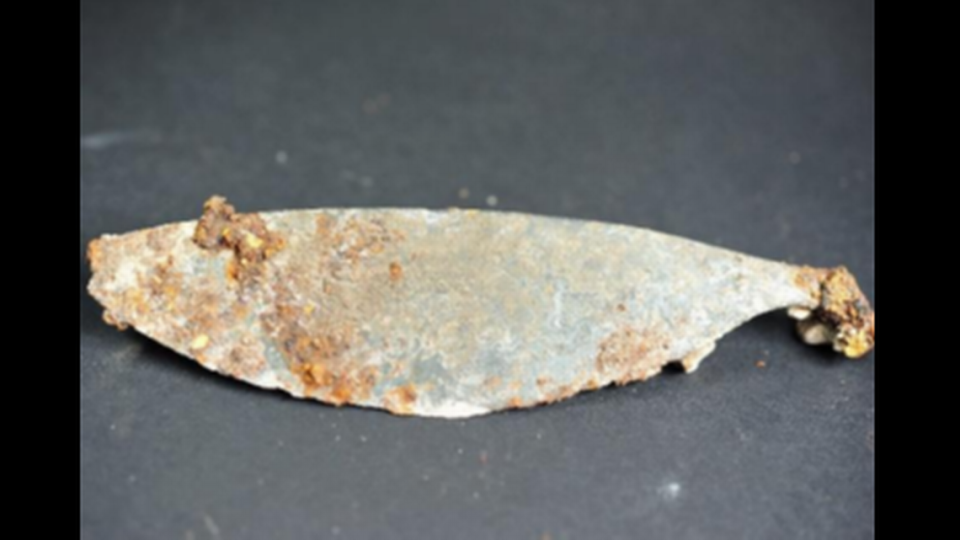Hunt for leftover World War II explosives leads to something several millennia older
While searching for remaining World War II explosives, German archaeologists recently unearthed an ancient Celtic burial pit filled with “like new” artifacts.
Archaeologists were excavating to dispose of any leftover explosives from World War II ahead of a construction project in Sendling when they discovered the Celtic remains, according to an April 24 news release from the Bavarian State Office for the Preservation of Monuments.
The ancient grave dates back about 2,300 years to a time when Celts burned their dead before burying their remains with grave goods, experts said. The grave is an example of such a burial, holding the remains of a fibula and several ancient goods.

Based on the goods unearthed from the grave, experts said the man who was buried likely had a high social standing.
Among the grave goods, archaeologists unearthed a pair of scissors in surprising condition, they said. Despite their age, the scissors did not show signs of age or rust.

Experts also discovered remains of a shield, a spearhead and a razor.

The team also excavated a sword that had been heated and folded until it was unusable — but they aren’t entirely sure why it was folded.
Some experts posit that the sword was folded as a form of protection for looting while others believe it was folded to fit inside for the burial, according to the team’s release. Others think the sword was folded as a ritual in death or as a superstitious measure.
Sendling is a region in Munich.
Google Translate was used to translate the news release from the Bavarian State Office for the Preservation of Monuments.
Wealthy ancient Roman suburb — with huge bathhouse — unearthed in Germany, photos show
1,600-year-old temple to mysterious Roman god unearthed in Germany. Take a look
Lost treasures found in toilets of 400-year-old palace in Poland destroyed by Nazis
